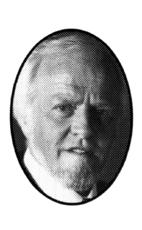Mr. Speaker, on behalf of all the Bloc members, I am pleased to speak on the issue of South Africa. The Secretary of State is giving us this opportunity, this morning, with her outline of the new interim program Canada is beginning to implement in that country. We must welcome this new Canadian commitment very favourably. Indeed, South Africa needs the constant support of the international community to be able to pursue successfully its democratization process.
As I mentioned in this House on April 26, while for the first time, Blacks in all the villages, towns and cities of South Africa were starting to vote in order to elect representatives, as parliamentarians, we cannot remain indifferent to the testimony of an elderly citizen who told us: "Now that I have voted for the first time in my life, I can die".
As indicated by the Secretary of State, governance, human resources training, strengthening the civil society, and economic growth in South Africa seem to be well-targeted priorities. We are confident that they will make it possible to sustain coherent development, which will bolster lasting peace and social justice.
This three-year $20 million program is very timely. We believe that Canada, in addition to its foreign aid action and its remarkable involvement in UN peacekeeping, must make the promotion of human rights and democracy one of the key areas, if not the cornerstone of its foreign policy.
Canada's recent turnaround on this fundamental issue does not augur well. If the Secretary of State is as concerned about promoting democracy as she would have us believe this morning, can she tell us what she really thinks of her government's drastic change of direction on this issue, a change which is far from identifying democracy and human rights as one of the main elements shaping Canada's foreign policy?
I want to take the opportunity given to us this morning to call upon the Secretary of State to intervene. Her government's lack of leadership on the issue of human rights is an outright shame. I urge her to ask her Prime Minister not to renege on Canada's international commitments such as those made at the 1989 Dakar Francophone Summit, where the 42 French-speaking countries passed a Canadian resolution to give basic objective status to the protection of human rights in the international community.
Indeed, respect of individual rights was confirmed as a determining factor in the granting of international assistance at the 1991 Commonwealth Summit in Zimbabwe. So, on behalf of the thousands of Chinese people who have been left to rot in prison unjustly, I call upon her, I urge her to ask her Prime Minister to raise publicly the issue of human rights violation during his visit to China. It is her duty to do so, unless she too is afraid that Canada will be laughed at.
But the example of South Africa speaks for itself. This shift the government is making will unfortunately cause the issue of human rights to be discussed behind the scenes, to humour certain nations, particularly potential commercial channels for Canada. We suggest that Canadian action should be consistent. Canada should have the courage of its convictions if it hopes to be respected and to maintain its credibility around the world.

